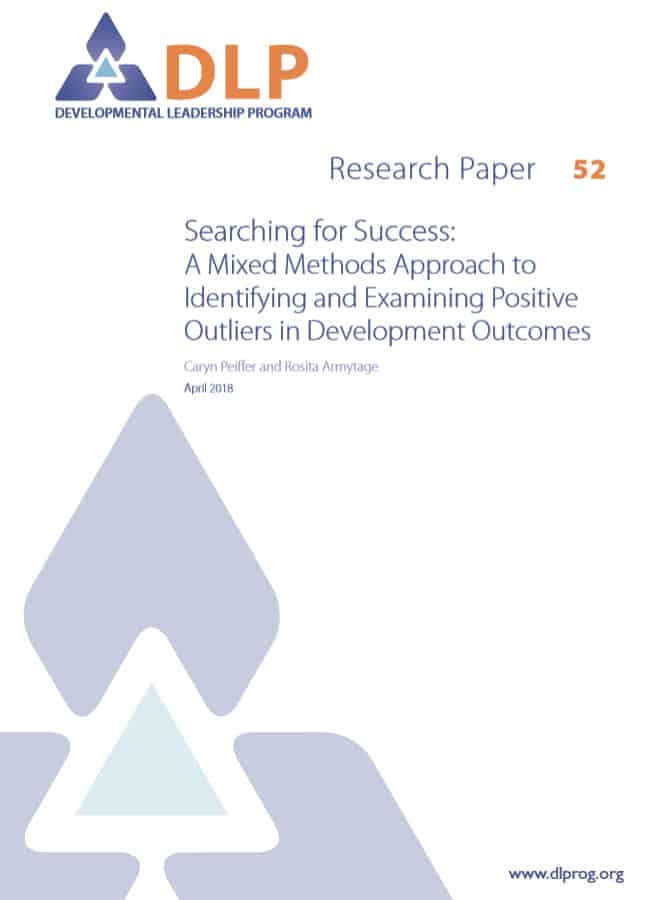Increasingly, development scholars and practitioners are reaching for exceptional examples of positive change to better understand how developmental progress occurs. These are often referred to as ‘positive outliers’, but also ‘positive deviants’ and ‘pockets of effectiveness’.
Studies in this literature promise to identify and examine positive developmental change occurring in otherwise poorly governed states. However, to identify success stories, such research largely relies on cases’ reputations, and, by doing so, overlooks cases that have not yet gained a reputation for their developmental progress.
This paper presents a novel three-stage methodology for identifying and examining positive outlier cases that does not rely solely on reputations. It therefore promises to uncover ‘hidden’ cases of developmental progress as well as those that have been recognised.
Its utility is shown through its use in uncovering two country case studies in which surprising rates of bribery reduction occurred, though the methodology has much broader applicability. The advantage of the methodology is validated by the fact that, in both of the cases identified, the reductions in bribery that occurred were largely previously unrecognised.











